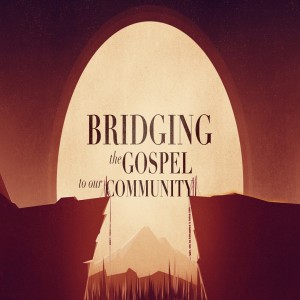Episodes

Wednesday Sep 18, 2019
Wednesday Sep 18, 2019
What’s a Believer to Do?
Following Jesus in an Age of Tragedy
“Serve the Master” (Lk.17:5-10)
The disciples asked Jesus to increase their faith (Lk.17:5). What a needed request for all of us in this day of tragedy! Jesus tells a story to teach how faith grows. Do you want your faith to increase? Jesus says our faith increases as we serve the Master and His purposes. Will you serve Him?
Forgiveness challenges our faith to grow (17:4)-
Forgiveness is the context for the request for greater faith (17:5).
The ability/opportunity to forgive becomes a case study model.
Forgiving others takes faith.
Faith (trust) that God has forgiven me, so I can forgive you.
Faith growth begins by confessing our desperate need for it (17:5)-
The disciples conceptualize this as a “forgiveness challenge.”
They seem to wonder if such forgiveness is even possible.
Hear their exclamation as a confession/request: “Increase our faith!”
Even small faith can do great things according to Jesus (17:6).
Jesus affirms: small faith can accomplish more than we think possible.
Jesus teaches: small faith can do great things: “If you have faith (and
you do) you could...” (Stein). Practice small faith (Garland)!
Jesus illustrates by a small seed: it germinates/grows like faith does.
it becomes vital/vigorous (Gideon)!
Faith grows from humbly serving the Master (17:7-10).
Jesus tells a parable to help them conceptualize a growing faith.
Jesus teaches: our faith grows as we serve the Master!
no faith growth when we expect the Master to serve us.
Stop expecting God to serve you like some cosmic genie.
We are His slaves (douloi) merely doing our duty in His Kingdom.
“Service demands all we can bring to it.” (France)
This mindset and lifestyle grows faith even in an age of tragedy.
How will you humbly, obediently serve the Master?
Your faith will grow as you serve the Lord & His kingdom’s purposes!
Jesus invites us to obedience- do what the Master says!

Wednesday Sep 18, 2019
Wednesday Sep 18, 2019
What’s a Believer to Do?
Following Jesus in an Age of Tragedy
“Pray!” (1Sam.12:23)
Samuel is facing leadership challenges w/ Saul’s anointing as king. The tragedy is the people have rejected God's leadership over them. While Samuel could quietly step away, he instead vows publicly to engage in the ministry of intercessory prayer. We have much to learn from his example.
Intercessory prayer is... talking with God about the needs we see/sense
around us.
It is asking God to intervene in His wisdom, His way, and His timing.
It is not directing God to act or perform as we think best!
Intercessory prayer is intensely personal (v.23). Twice Samuel professes
his personal conviction (“as for me... far be it from me...”).
He embraces this responsibility to intercede personally.
Prayer is doing something! Prayer is and does more than we think.
Intercessory prayer is entrusting to God what is beyond our control,
ability, and influence.
Intercessory prayer acknowledges His power & our dependence on it.
Intercessory prayer is costly (v.23)-
He sees failure to engage in such personal prayer ministry as breaking
his relationship w/ God (“...sin against the Lord...”).
Prayer costs his preference, attitude, energy, time, etc.
Intercessory prayer changes us (vv.23-25)!
It changes our role. He desires to teach "what is good and right" (v.23).
It changes our reach. He stands in the gap for God's people (vv.24-25).
It changes our relationship with God (perspective/attitude changes).
Let’s practice what Samuel (and Jesus) did- pray! (cf. Jn.17:20-26)
Does a situation viscerally move me? (sad/concerned/frustrated/angry)
Am I helpless to intervene and feel desperate to do something?
Does the situation cry out for God’s intervention?

Wednesday Sep 18, 2019
What's a Believer to Do? "Repent" (Billy Russell 08/25/19)
Wednesday Sep 18, 2019
Wednesday Sep 18, 2019
What's a Believer to Do? "Repent"
Luke 13:1-5
This passage seems a harsh word by Jesus in the face of human tragedy. However, it clearly connects that call to repent with the offer of mercy. Let us gladly respond to Jesus' command and let mercy triumph judgment!
What do we know about these two tragic Jerusalem events? (v.13:1,4)
Jesus' preaching centers around the command, "Repent!" (v.13:3,5)
What is it Jesus expects to happen when He commands "Repent"?
Repent or Perish: Are those the only two options? (vv. 13:3, 5; John 3:16)
Jesus' teaching thankfully connects mercy with repentance! (vv.13:6-9)

Wednesday Sep 18, 2019
What’s a Believer to Do? Following Jesus in an Age of Tragedy (Billy Russell 08/18/19)
Wednesday Sep 18, 2019
Wednesday Sep 18, 2019
What’s a Believer to Do?
Following Jesus in an Age of Tragedy
(Mt.14:1-23)
We can be inundated and overwhelmed by the traumas of our day. Jesus was no stranger to the calamities of his time. Today, we observe how Jesus responded to the news of the traumatic death of John the Baptist. John’s loss impacted Jesus personally. How can we follow Jesus in our age of tragedy?
Follow Jesus’ Example
Jesus grieves privately (14:13)-
He “... heard about it...”- exposed to the tragic death of John.
“He withdrew by boat to a remote place to be alone”-
What does Jesus do? “withdrew”-
How? “by boat”-
Where? “to a remote place”-
Why? “to be alone”-
Jesus serves publicly (14:14-21)-
“When he went ashore, he saw a large crowd...”- He re-engages in the
reality of the needs of now.
“He had compassion on them...”- His heart went out to the crowd.
He heals, teaches & feeds the mega-crowd: ministry in the moment.
Jesus gets ready for what’s next (14:22ff)- practices spiritual preparation
“... he went up on the mountain by himself to pray” (14:23)- He re-
engages in caring for himself through prayer.
“Well into the night, he was there alone.” (14:23)- purposeful solitude.
Observe Jesus’ helpful rhythm for us to follow (14:13; 14ff; 22ff):
He spends time w/ the Father.
He invests time w/ the disciples.
He shares time w/ people.
Ultimately, John’s tragic death foreshadows Jesus’ path to the cross.
Jesus’ way will be fraught with suffering before glory.
Jesus continues ministry and preaching the Gospel of the Kingdom.

Wednesday Aug 14, 2019
Wednesday Aug 14, 2019
Table Talk: Sharing Food, Time, and Jesus with People
“Eat. Love. Follow Jesus.” (Jn. 21:1-22)
In this post-resurrection appearance, Jesus and some of the disciples enjoy a miraculous catch! Then, they have a great fish breakfast on the beach at the lake. This scene is one challenging conversation for a fish fry on the beach! Let us all take inventory of how we are following Jesus as the new school year kicks-off. Whatever it takes- Follow Jesus!
Eat - “Come and have breakfast” (v.12)- This hospitality scene sets the
stage for a restoration conversation. Jesus initiates the invitation and
the conversation. Meals are great times for spiritual conversations.
Love- “Do you love Me?” (3x- vv. 15-17)- a commitment conversation!
Jesus initiates a conversation with Peter, taking him aside.
The well known triple commissioning exchange (“Peter, do you love
Me”...“Yes, Lord, you know that I love you...”/“Feed my sheep...”).
Just like there were 3 denials, now there are 3 affirmations of Peter’s
restored role and purpose.
Love is the motivation to follow and serve Jesus. Love acts.
Do you love Jesus? Are you committed to follow Jesus?
Follow Jesus- “You must follow Me” (vv.19, 22)- grand “must” for us all!
Jesus says, “Follow Me” (v.19). This command is the very center of life.
This command, though initially for Peter, resonates down to all of us.
Jesus says, “You must follow Me” (v. 22). No matter what happens with
others or what they do, you keep your focus on Jesus!
For Peter, following Jesus will include: shepherding people, teaching
and preaching the Gospel, leading/equipping God’s people, an
inspired writing ministry, traveling, and, eventually, martyrdom.
Why follow Jesus? He loves you! He gave His life for you. He’s the Way!
What does your commitment to follow Jesus include?

Thursday Aug 08, 2019
Thursday Aug 08, 2019
Table Talk: Sharing Food, Time, and Jesus with People
“Believing is the Best Dessert” (Jn.2:1-11)
A well-known example of a hospitality occasion occurs at the wedding in Cana. Jesus enjoys a weeklong celebration with his family and disciples. His first miracle (sign) occurs here. John says the disciples believe in who Jesus is and has come to be. Believing is the best dessert!
Accept the invitation and enjoy the festivities! (vv.1-4)-
Jesus, his family, and disciples were invited to a wedding in Cana, not
far from Nazareth (~8 miles).
Jesus accepts and enjoys the week-long celebration!
Jesus invests great time in his early ministry to this social commitment.
Who’s wedding was blessed to have Jesus attend? (A family member,
John, Nathaniel?)
A social crisis occurs (wine depleted). Mary asks Jesus to intervene.
Practice this lifetime wisdom (v.5): “Do whatever He tells you”-
Learning to believe in Jesus and do what he says is at the heart of
being a follower of Jesus.
Mary sets the stage, if Jesus decides to act on her request.
This is a truth to practice. (Not always practiced by Mary, cf. Mk.6:21)
This truth makes a good focus verse, or even a life verse.
Followers of Jesus seek Him and learn to do what He says.
Will you do whatever He tells you?
Believe in the display of Jesus’ glory (vv.6-11)!
Jesus, using a process, turns “H2O into Merlot.” Jesus’ 1st miracle.
Miracle (sign) - glory - belief
The miracle is a sign. What does a sign do?
The sign points to Jesus’ glory (Who He is - God’s Son, Messiah)!
Jesus’ glory displayed is occasion for belief in who He is.
Believe in Jesus. Put your trust in Him.
Learn to do what He says. Train yourself to trust Him.
Believing is the best part! (cf.Jn.4:41-42)

Tuesday Jul 30, 2019
Table Talk: Sharing Food, Time, and Jesus with People (Rodney Reeves, 07/28/19)
Tuesday Jul 30, 2019
Tuesday Jul 30, 2019
Table Talk: Sharing Food, Time, and Jesus with People
Luke 24:36-49

Tuesday Jul 30, 2019
Tuesday Jul 30, 2019
Table Talk: Sharing Food, Time, and Jesus with People
“Burning Hearts, Open Eyes, Bold Voices” (Luke 24:13-35)
Two deeply disappointed and discouraged disciples, Cleopas and another, journey home on the afternoon of Resurrection Day. They discuss recent events with a stranger, Jesus incognito, while on the seven-mile walk to Emmaus. These two fellow strugglers experience Jesus’ presence over a meal as He prays, breaks bread, then immediately vanishes! Today, we explore the first part of their profound faith story.
Closed eyes (vv.13-16)-
They talk while they walk about the events of the weekend.
They are “kept from recognizing” Jesus.
Jesus asks them about their conversation.
Discouraged hearts (vv.17-24)-
“Are you...?”- sarcasm of pain.
“What things?”- Jesus’ invitation to tell their story.
They recount their Messianic hope in Jesus and His crucifixion.
3rd day story of the women’s report of the empty tomb.
Burning hearts (vv.25-30)-
Jesus redirects their Messianic hopes: suffering and glory!
Jesus shares His story! Jesus explains OT prophecy about Himself!
They extend hospitality to Jesus (“stay w/ us”) and He accepts.
Open eyes (vv.31-33)-
When they prayed together and broke bread, Jesus is revealed to them!
“Then their eyes were opened and they recognized him...” He vanishes!
Divine revelation is necessary to know Jesus as resurrected Lord.
Open mouths (vv.34-35)-
It is the disciple’s joy to make Jesus known after coming to know Him.
These two disciples are the affirming voices of the resurrection for the
eleven and those gathered with them.
Their boldness infuses the astonishment of Resurrection Day with
validity and credibility.

